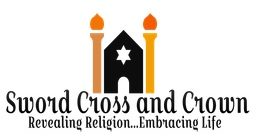
False prophets may pronounce death, but only Jesus can pronounce life
After Jesus revealed to Martha, that He was the resurrection and the life; the historical record continues – “She said to Him, ‘Yes, Lord, I believe that You are the Christ, the Son of God, who is to come into the world.’ And when she had said these things, she went her way and secretly called Mary her sister, saying, ‘The Teacher has come and is calling for you.’ As soon as she heard that, she arose quickly and came to Him. Now Jesus had not yet come into the town, but was in the place where Martha met Him. Then the Jews who were with her in the house, and comforting her, when they saw that Mary rose up quickly and went out, followed her, saying, ‘She is going to the tomb to weep there.’ Then, when Mary came where Jesus was, and saw Him, she fell down at His feet, saying to Him, ‘Lord, if You had been here, my brother would not have died.’ Therefore, when Jesus saw her weeping, and the Jews who came with her weeping, He groaned in the spirit and was troubled. And He said, ‘Where have you laid him?’ They said to Him, ‘Lord, come and see.’ Jesus wept. Then the Jews said, ‘See how He loved Him!’ And some of them said, ‘Could not this Man, who opened the eyes of the blind, also have kept this man from dying?’ Then Jesus, again groaning in Himself, came to the tomb. It was a cave, and a stone lay against it. Jesus said, ‘Take away the stone.’ Martha, the sister of him who was dead, said to Him, ‘Lord, by this time there is a stench, for he has been dead four days.’ Jesus said to her, ‘Did I not say to you that if you would believe you would see the glory of God?’ Then they took away the stone from the place where the dead man was lying. And Jesus lifted up His eyes and said, ‘Father, I thank You that You have heard Me. And I know that You always hear Me, but because of the people who are standing by I said this, that they may believe that You sent Me.’ Now when He had said these things, He cried with a loud voice, ‘Lazarus, come forth!’ And he who had died came out bound hand and foot with graveclothes, and his face was wrapped with a cloth. Jesus said to them, ‘Loose him, and let him go.’” (John 11: 27-44)
By raising Lazarus from the dead, Jesus brought His words – “’I am the resurrection and the life’” to reality. Those who witnessed this miracle saw the power of God to raise a dead man to life. Jesus had said that Lazarus’ sickness was not “unto death,” but it was for the glory of God. Lazarus’ sickness did not result in spiritual death. His illness and temporary physical death, was used by God to manifest God’s power and authority over death. Lazarus’ spirit and soul only temporarily left his body. Jesus’ words – “’Lazarus, come forth,’” summoned Lazarus’ spirit and soul back to his body. Lazarus would eventually experience a more permanent physical death, but through faith in Jesus, Lazarus would not be separated from God for eternity.
Jesus said He is “life.” What does this mean? John wrote – “In Him was life, and the life was the light of men.” (John 1: 4) He also wrote – “He who believes in the Son has everlasting life; and he who does not believe the Son shall not see life, but the wrath of God abides on him.” (John 3: 36) Jesus warned the religious Pharisees – “The thief does not come except to steal, and to kill, and to destroy. I have come that they may have life, and that they may have it more abundantly.” (John 10: 10)
In His Sermon on the Mount, Jesus warned – “’Beware of false prophets, who come to you in sheep’s clothing, but inwardly they are ravenous wolves. You will know them by their fruits. Do men gather grapes from thornbushes or figs from thistles? Even so, every good tree bears good fruit, but a bad tree bears bad fruit. A good tree cannot bear bad fruit, nor can a bad tree bear good fruit. Every tree that does not bear good fruit is cut down and thrown into the fire. Therefore by their fruits you will know them.’” (Matt. 7: 15-20) We learn from Galatians – “But the fruit of the Spirit is love, joy, peace, longsuffering, kindness, goodness, faithfulness, gentleness, self-control. Against such there is no law.” (Gal. 5: 22-23)
The false prophet Joseph Smith introduced “another” gospel, one in which he himself was a very important part of. The second LDS false prophet Brigham Young made this statement in 1857 – “…Believe in God, Believe in Jesus, and believe in Joseph his Prophet, and in Brigham his successor. And I add, ‘If you will believe in your heart and confess with your mouth that Jesus is the Christ, that Joseph was a Prophet, and that Brigham was his successor, you shall be saved in the kingdom of God,” (Tanner 3-4)
We also learn from Galatians – “Now the works of the flesh are evident, which are: adultery, fornication, uncleanness, lewdness, idolatry, sorcery, hatred, contentions, jealousies, outbursts of wrath, selfish ambitions, dissensions, heresies, envy, murders, drunkenness, revelries, and the like; of which I tell you beforehand, just as I also told you in time past, that those who practice such things will not inherit the kingdom of God.” (Gal. 5: 19-21) There is clear historical evidence that both Joseph Smith and Brigham Young were adulterers (Tanner 203, 225). Joseph Smith was a lewd man; when refused the wife of one of his apostles, he took Heber C. Kimball’s young daughter as his wife instead (Tanner 213). Joseph Smith used sorcery to concoct the Book of Mormon by using a peepstone (Tanner 43). In his pride (a trait which God hates), Joseph Smith once stated – “I combat the error of ages; I meet the violence of mobs; I cope with illegal proceedings from executive authority; I cut the gordian knot of powers, and I solve mathematical problems of universities, with truth – diamond truth; and God is my ‘right hand man’” (Tanner 255) Both Joseph Smith and Brigham Young were heretical men. Joseph Smith taught that God was no more than an exalted man (Tanner 163), and in 1852, Brigham Young preached that Adam “is our Father and our God” (Tanner 173).
Both Joseph Smith and Muhammad saw their authority as more than just spiritual. They both became civil and military leaders who felt they had the authority to decide who would live, and who would die. An early Mormon leader, Orson Hyde, wrote in an 1844 Mormon newspaper – “Elder Rigdon has been associated with Joseph and Hyrum Smith as a counselor of the church, and he told me in Far West that it was the imperative of the Church to obey the word of Joseph Smith, or the presidency, without question or inquiry, and that if there were any that would not, they should have their throats cut from ear to ear” (Tanner 433). Anees Zaka and Diane Coleman wrote – “Muhammad was, at his core, ambitious and deliberate. The claim to prophethood, based on periodic seizure-like episodes, gave him status and authority among the Arab people. The pronouncement of a divine book sealed that authority. As his power grew, so did his desire for greater control. He used all the means at his disposal to subdue and conquer. Raiding caravans, raising a militia, taking captives, ordering public executions – all were legitimate for him, since he was the ‘chosen messenger’ of Allah” (54).
Salvation through the grace of Jesus Christ is fundamentally different from the religions created by Joseph Smith and Muhammad. Jesus brought life to man; Joseph Smith and Muhammad justified taking life. Jesus gave His life so that those who trust Him could be eternally forgiven of their sins; Joseph Smith and Muhammad were both filled with ambition and pride. Jesus Christ came to set people free from sin and death; Joseph Smith and Muhammad enslaved people to religion – to the continual effort of attempting to please God through outward obedience to ordinances and rituals. Jesus came to restore man’s relationship with God which had been lost since the fall of Adam in the Garden; Joseph Smith and Muhammad led people to follow them – even if through the threat of death.
Jesus Christ has paid the price for your sins. If you trust in His finished work on the cross and surrender to His Lordship over your life, you will find the blessed fruit of God’s Spirit as a part of your life. Won’t you come to Him today…
References:
Tanner, Jerald, and Sandra Tanner. Mormonism – Shadow or Reality? Salt Lake City: Utah Lighthouse Ministry, 2008.
Zaka, Anees, and Diane Coleman. The Noble Qur’an’s Teachings In Light of the Holy Bible. Phillipsburg: P&R Publishing, 2004



